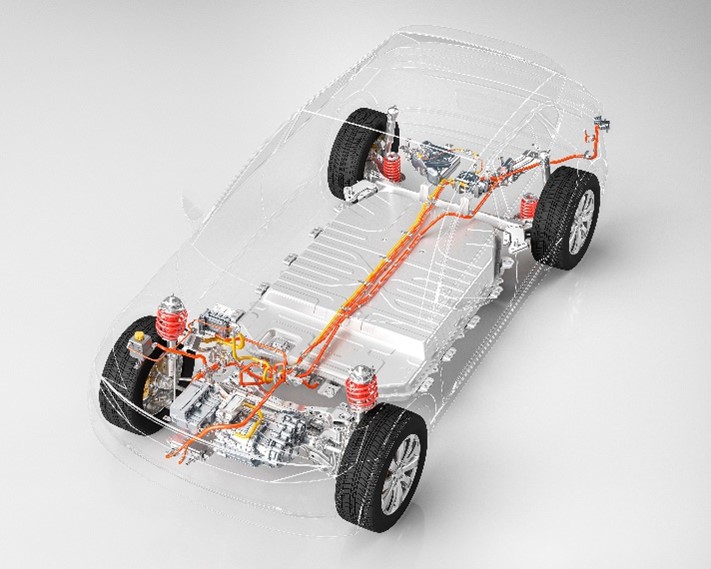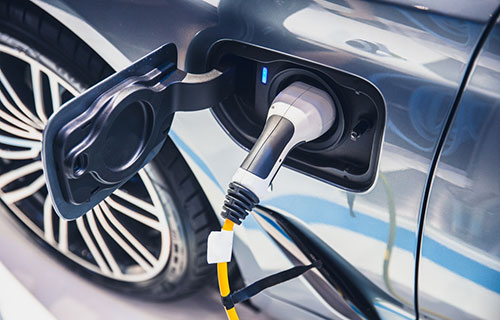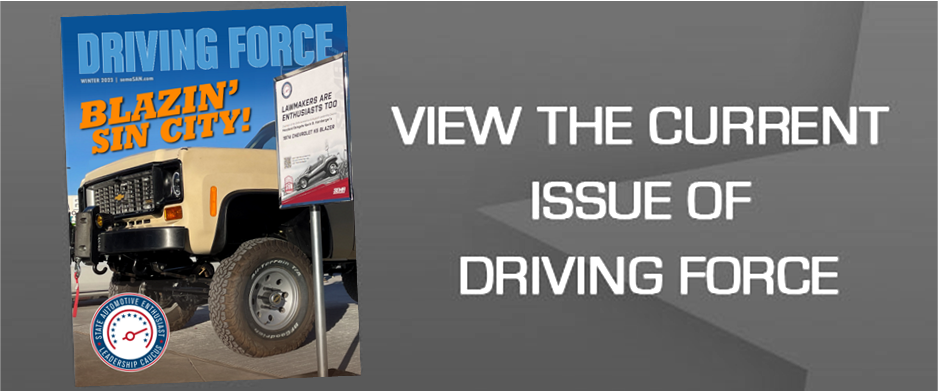BREAKING NEWS
SEMA Advocacy Leads to EPA Delaying Most Aggressive Tailpipe Emissions Benchmarks

After advocacy from the automotive community, the U.S. Environmental Protection Agency (EPA) is delaying its most aggressive tailpipe emissions reduction requirements from model year 2027 to model year 2030. The EPA’s final rule also slightly increased the average tailpipe emissions for light-duty vehicles, increasing the standard to 85 grams/mile from 82 grams/mile for model year 2032.
While the agency’s final rulemaking provides automakers with additional time to ramp up production of zero-emissions vehicles (ZEVs), currently, only electric vehicles (EVs) and five plug-in hybrid electric vehicles (PHEV) meet the easier 85 grams/mile standard. It is estimated that 67% of new vehicles sold would have to be EVs by 2032 to meet this standard. Automakers could also comply with the final rule if EVs account for 56% of new vehicle sales and PHEVs comprise 13% of model year 2032 sales. The Specialty Equipment Market Association (SEMA) opposes the EPA’s final standards for model year 2027 to 2032 light and medium-duty vehicles, which ultimately still forces automakers to sell EVs and PHEVs to comply with this rulemaking and further limits internal combustion engine technology options.
Legislative Alerts
UPDATE: Kansas Advances Bill to Protect Vehicle Choice
Maine Lawmakers Seek Legislative Control Over Potential Internal Combustion Engine Ban
Minnesota Introduces Bills to Protect Enthusiasts from Unfair Citations
Utah Governor Signs Single Plate Bill into Law
Act Now: Georgia Legislature Passes Bill to Clarify Suspension Laws
Kentucky Introduces Bill Supporting Internal Combustion Engines
Act Now: Maryland Advances Bills to Approve Unfair Exhaust Noise Cameras
BREAKING NEWS
Maine Rejects ICE Ban Amid Legislative Debate and Industry Opposition

After a several-month delay, Maine's Board of Environmental Protection (BEP) voted against adopting a SEMA-opposed proposal requiring that 82% of new vehicles sold in the state be zero-emissions vehicles (ZEV) by 2032. A vote had been scheduled for December 2023 but was postponed due to a severe winter storm.
Drafted in response to a citizen petition from an environmental group, the rule aimed to tighten emissions standards for new passenger cars, light-duty trucks and medium-duty vehicles sold in Maine, aligning the state with California's latest clean-car rules, which the state has historically followed.
While the BEP debated adopting California's clean-car rules, lawmakers concurrently held a hearing on a bill (L.D. 2261) that would reclassify the proposal as a "major" regulation, providing the legislature with final approval before it could become law.
SEMA believes that Mainers, not the government, should decide what vehicles are best for them and their families. And, in the case of Maine, it rebukes the push by 150 citizens who attempted to determine policy for the rest of the state. The automotive industry is embracing new technology to make cars cleaner and more efficient, including hydrogen, new synthetic fuels, alternative fuels and improvements to the internal combustion engine. The government should allow the market to continue to innovate all forms of technology that significantly reduce vehicle emissions.


